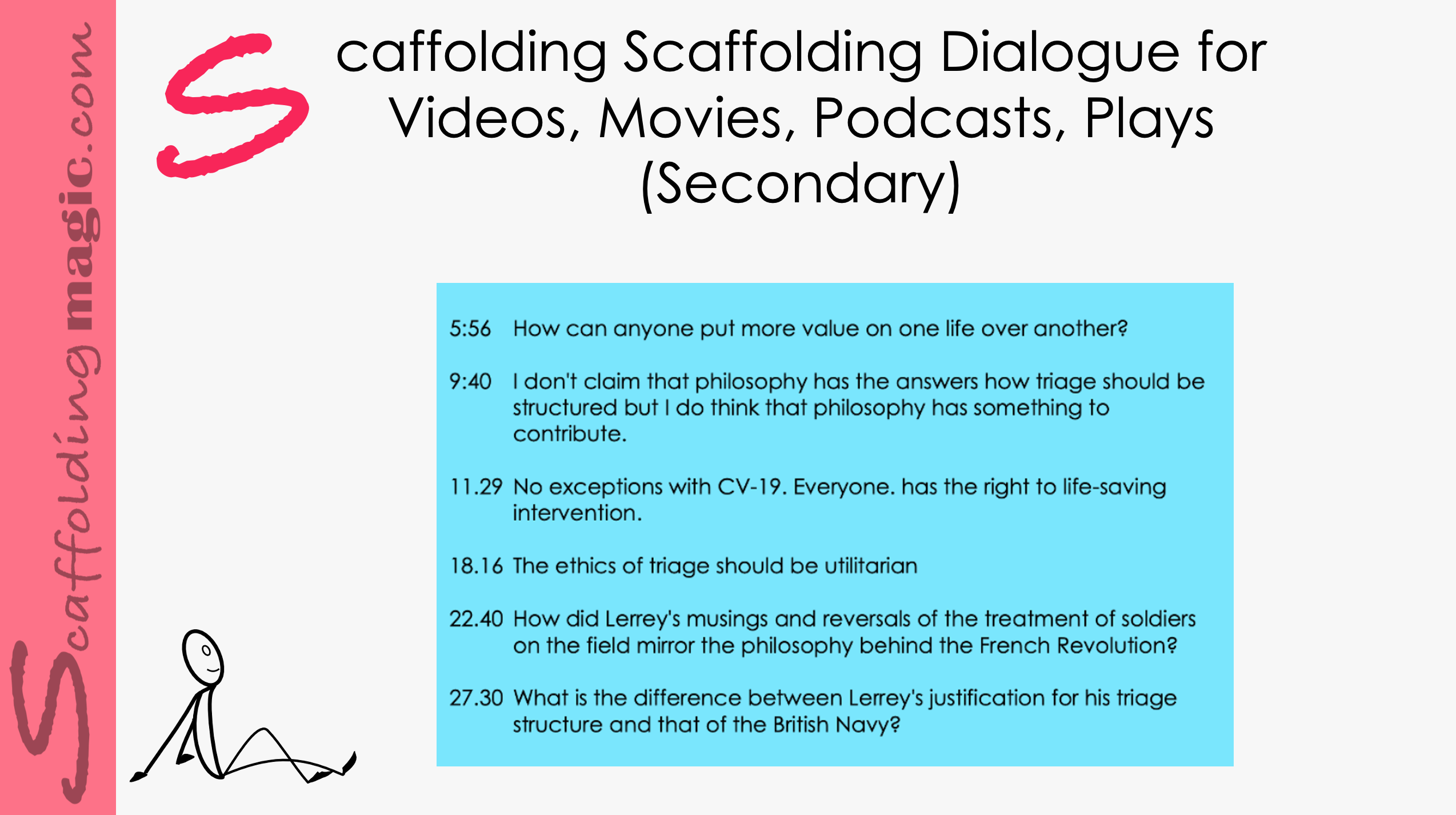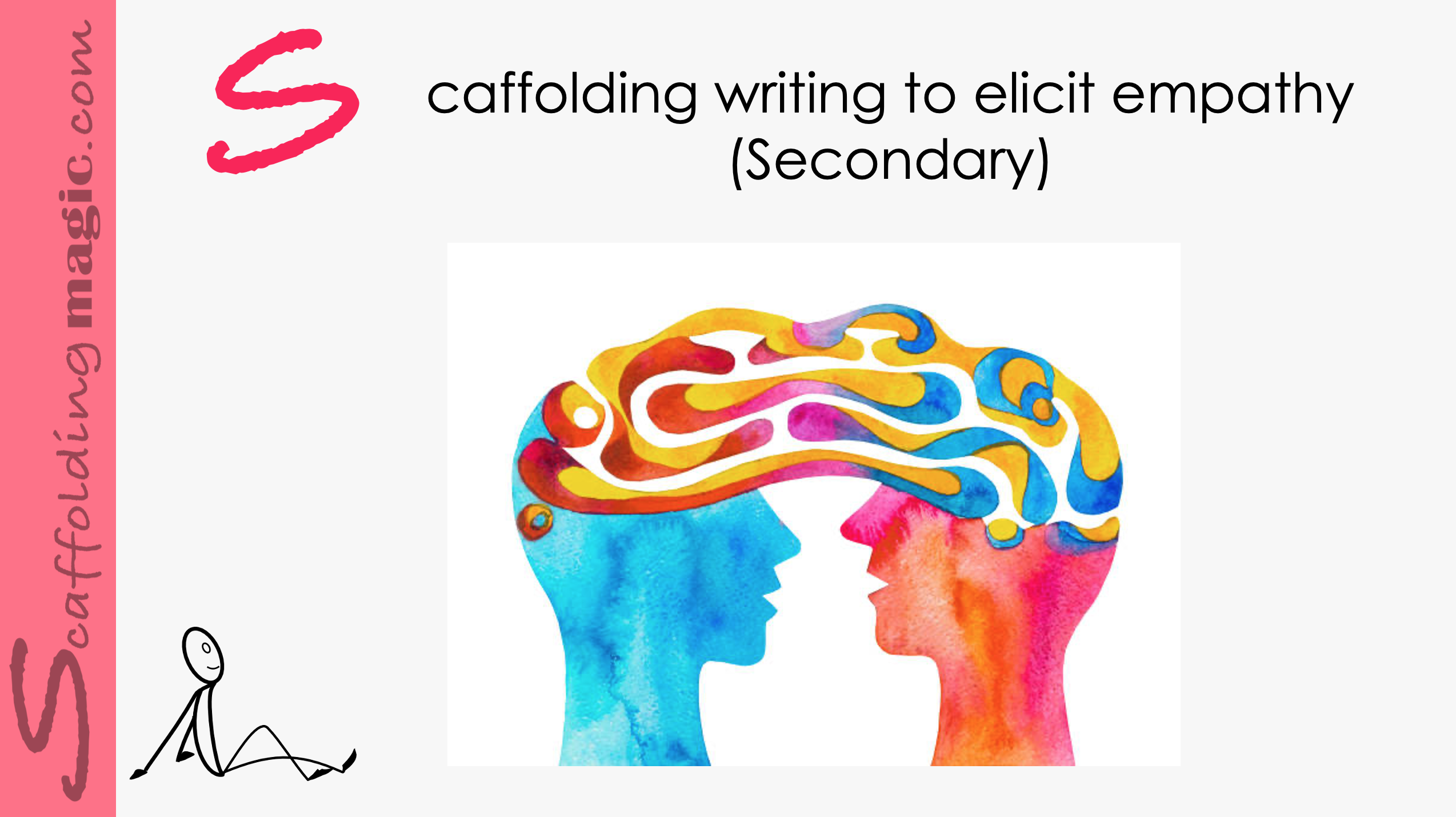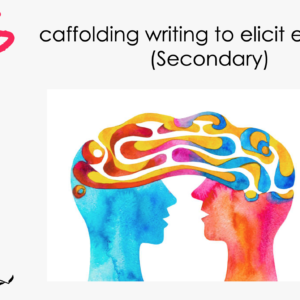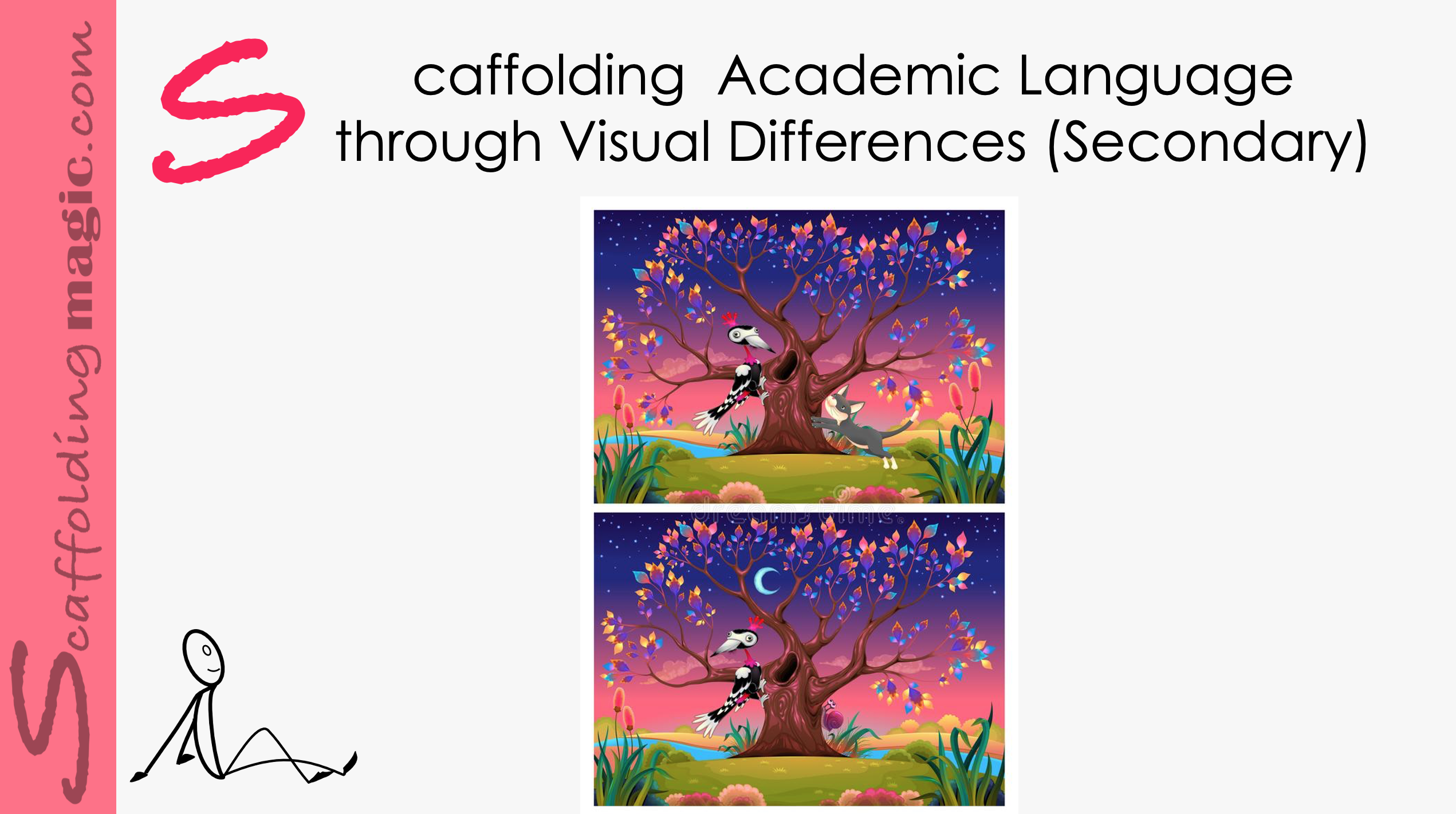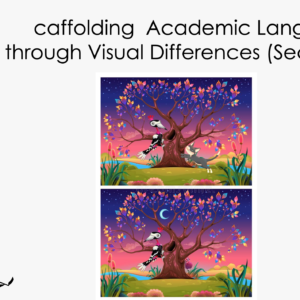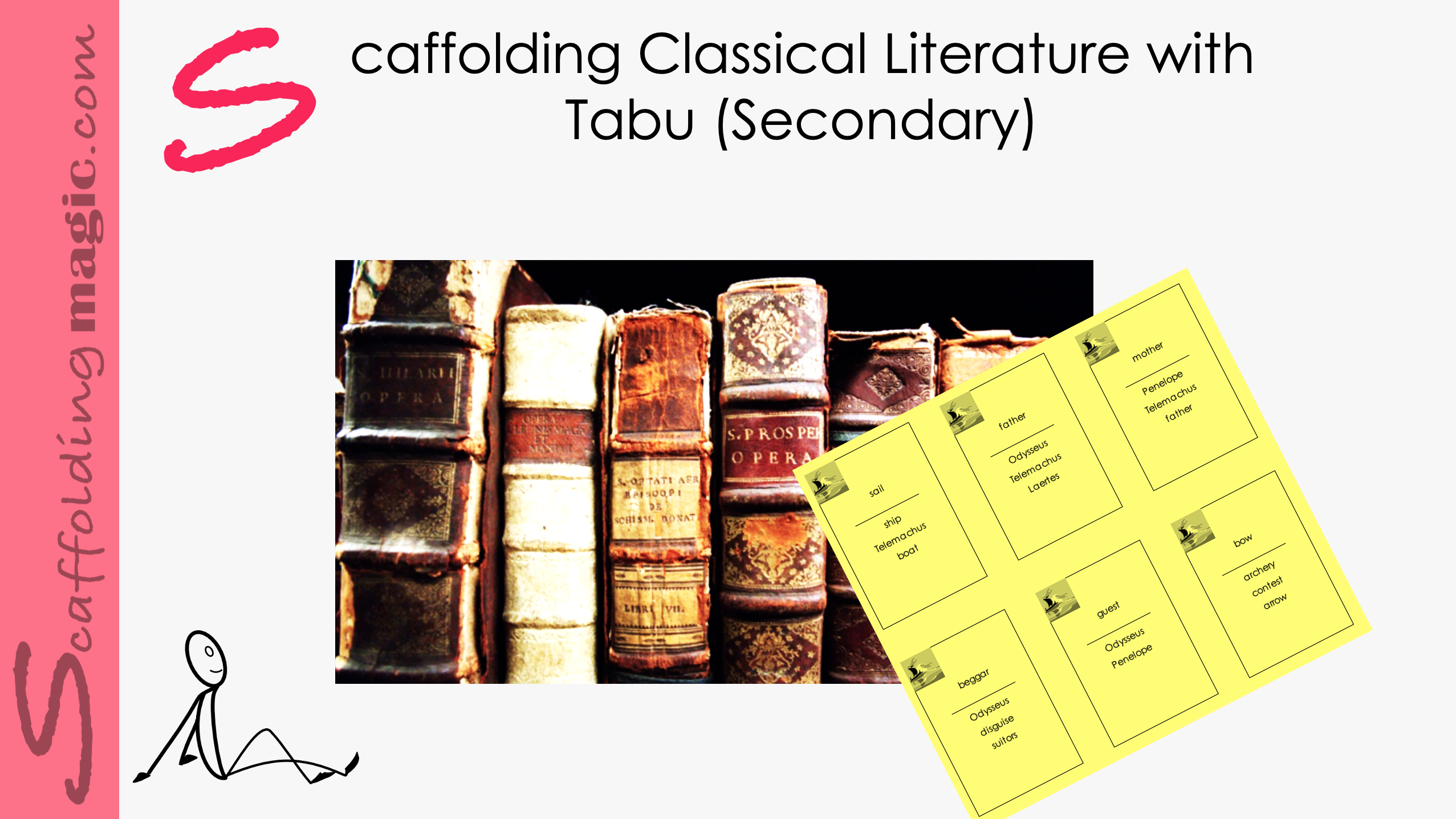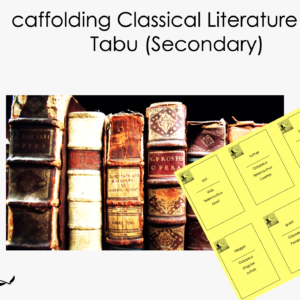The ability to switch perspective is essential to learning in every domain. For those who follow Deepak Chopra and his deeply rooted scientific conclusions regarding the human condition, the more effort we make in seeing a situation through the perspective of someone we are offended by or disagree with, the more we heal on a cellular level – both emotionally and physically. Students are going to read chunks of dialogue taken from various tracks.
Scaffolding Dialogue for Videos, Movies, Podcasts, Plays (Secondary)
$5.00
The ability to switch perspective is essential to learning in every domain. For those who follow Deepak Chopra and his deeply rooted scientific conclusions regarding the human condition, the more effort we make in seeing a situation through the perspective of someone we are offended by or disagree with, the more we heal on a cellular level – both emotionally and physically. Students are going to read chunks of dialogue taken from various tracks.
Related products
-
Secondary ScaffoldsQuick View
Scaffolding Writing to Elicit Empathy (Secondary)
$5.00 Add to cartRated 0 out of 5 -
Secondary ScaffoldsQuick View
Scaffolding Academic Language by Identifying Visual Differences (Secondary)
$5.00 Add to cartRated 0 out of 5 - Quick View
- Quick View
Scaffolding Writing to Elicit Empathy (Secondary)
Writing is one of the four cornerstone skills of every inclusive educational curriculum. It helps us form our thoughts into coherent verses and communicate over distance and time. It is a skill usually approached as a way of appeasing bands for standardised exams, but, in fact, is the perfect tool to foster the development and expression of empathy.
Writing is one of the four cornerstone skills of every inclusive educational curriculum. It helps us form our thoughts into coherent verses and communicate over distance and time. It is a skill usually approached as a way of appeasing bands for standardised exams, but, in fact, is the perfect tool to foster the development and expression of empathy.
Scaffolding Academic Language by Identifying Visual Differences (Secondary)
Studies show that memorising academic language is ineffective in the long-term*. Students may be able to pass an exam they are studying for, but without having used the terms to analyse, compare, categorise, and defend their own ideas, most students will forget the meanings of the words as quickly as they learned them.
The solution is easy. We create opportunities for our students to use these words, terms and phrases while analysing, comparing, categorising, and defending their own ideas.
Studies show that memorising academic language is ineffective in the long-term*. Students may be able to pass an exam they are studying for, but without having used the terms to analyse, compare, categorise, and defend their own ideas, most students will forget the meanings of the words as quickly as they learned them.
The solution is easy. We create opportunities for our students to use these words, terms and phrases while analysing, comparing, categorising, and defending their own ideas.
Scaffolding Classical Literature with Tabu
Many ESL teachers will questions the importance of teaching and using classic literature in their classes. We probably all agree that it is not easy to teach in its authentic form as it demands a high level of language proficiency and maturity for any student, and especially students those whose home language is different from that of the class text.
Nevertheless, through varied techniques, the reading of authentic classic literature is an incredibly enriching experience (although your students may not appreciate or admit this until years later!). Gamify the learning and you have students begging for more!!!
Many ESL teachers will questions the importance of teaching and using classic literature in their classes. We probably all agree that it is not easy to teach in its authentic form as it demands a high level of language proficiency and maturity for any student, and especially students those whose home language is different from that of the class text.
Nevertheless, through varied techniques, the reading of authentic classic literature is an incredibly enriching experience (although your students may not appreciate or admit this until years later!). Gamify the learning and you have students begging for more!!!
Scaffolding Human Rights (Secondary)
March 25th is the International Day of Remembrance of the Victims of Slavery and the Transatlantic Slave Trade. As educators, it’s vital for us to pass on bits of history so that even our youngest learners can internalise the injustice of what happened, in order to create more hope for the human population of today. Most history texts are written in depersonalised structures (passive tense with no recognisable narrator’s voice), and so are divorced from a tangible context that we usually need to connect to the information. Let’s add humanity and feeling to history so that our students see the connection to what happened in the past, their reality, and what they can do to make positive changes in the future.
March 25th is the International Day of Remembrance of the Victims of Slavery and the Transatlantic Slave Trade. As educators, it’s vital for us to pass on bits of history so that even our youngest learners can internalise the injustice of what happened, in order to create more hope for the human population of today. Most history texts are written in depersonalised structures (passive tense with no recognisible narrator’s voice), and so are divorced from a tangible context that we usually need to connect to the information. Let’s add humanity and feeling to history so that our students see the connection to what happened in the past, their reality, and what they can do to make positive changes in the future.

